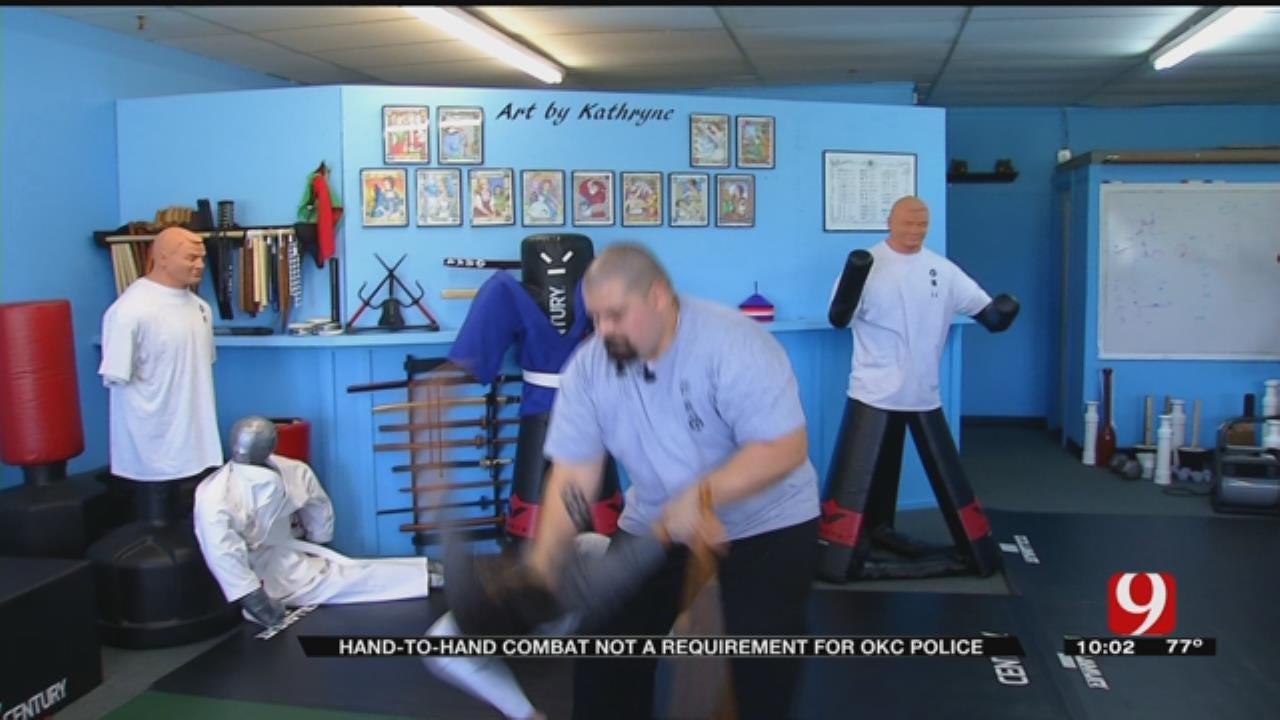OKC Officers Not Required To Practice Non-Lethal Combat
<p>After a deaf man was shot and killed by an Oklahoma City police officer this week, News 9 dug deeper into the non-lethal combat training the department provides.</p>Saturday, September 23rd 2017, 10:14 pm
After a deaf man was shot and killed by an Oklahoma City police officer this week, News 9 dug deeper into the non-lethal combat training the department provides. As it turns out, the officers are not required to regularly practice those tactics.
In the entire 613-page manual for the Oklahoma City Police Department, the only mention of self-defense training is during the police academy. There are detailed requirements for continued firearm training, but practicing hand-to-hand combat is entirely up to the individual.
In the Hoshin Dojo in Midwest City, Sensei Charles Wallace offers multiple CLEET-certified courses in martial arts, but his students pay out of pocket to attend.
He says, “There really should be a requirement for hand-to-hand because at the end of the day, drawing a weapon is not always appropriate.”
Wallace says besides taking a one-time combat course at his dojo, it is repetition that makes the moves muscle-memory. He believes the techniques he teaches may have saved Magdiel Sanchez's life, despite him carrying a pipe used to fend off stray dogs on his daily walks.
Another CLEET-certified combat course instructor and veteran, Tim Easton, agrees. He runs Castle Defense 360 Security, which trains law enforcement officers from around the country. Easton says he would have used the flank-and-attack method to disarm Sanchez.
In describing the scene of two officers facing a man armed with a pipe, he says, “If he goes and does a sudden movement to the individual’s side, and then his partner gets him from the other side, they can take him down.”
Both experts agree, police departments as a whole need to put more emphasis on non-lethal combat.
“The desire is there,” Wallace says on behalf of the officers. “The problem that I’ve seen historically from my personal experience is that the training isn’t available.”
In its absence, officers are placed in high-stress encounters and automatically go with the weapon they know, which is a gun.
Easton says from an officer’s perspective, “You don’t know which one is a criminal or which one is going to be violent, which one is on drugs, so they have a very short amount of time to make a split-second decision.”
Next week, all commissioned officers will go through a scheduled, annual training course specifically focusing on interactions with disabled citizens and those with mental health concerns.
More Like This
September 23rd, 2017
November 13th, 2024
October 28th, 2024
Top Headlines
April 4th, 2025










